Six Nations: England should win Slam - Jeremy Guscott
- Published
Six Nations: England's patchy Grand Slam record
Six Nations: France v England |
|---|
Date: Saturday, 19 March Venue: Stade de France, Paris Kick-off: 20:00 GMT |
Coverage: Live on BBC One, BBC Radio 5 live, BBC Sport website and BBC Sport app, plus live text commentary. |
Since the Five Nations became Six in 2000, England have gone into the final game of the championship on five occasions knowing that victory would give them a Grand Slam.
Only once have they won it and converted that position into a clean sweep of all five games.
However, against France on Saturday, I fully expect England to deliver coach Eddie Jones a Grand Slam in his first campaign.
This is why.
Read more | |
|---|---|
Better players
France v England preview
We should not be afraid to speak what we see - this French side is a poor one in comparison to the great teams of the past.
We always ask which French team is going to turn up, but if we are brutally honest, over the past eight years or so it is difficult to recognise France as the scary, brilliant, exciting, attacking side that used to run through teams.
There have been a couple of notable wins, namely over Australia in 2014 and New Zealand, external in 2009, and there was a dramatic victory the last time the teams met in Paris in the Six Nations.
They also ran red-hot favourites New Zealand close in the 2011 World Cup final.

England's record in Six Nations Grand Slam deciders
But France have failed to fire far more often than they have produced those stirring performances.
If a backline of Francois Trinh-Duc, Maxime Mermoz, Gael Fickou, Scott Spedding, Virimi Vakatawa and Wesley Fofana play their best rugby, if all the offloads stick, if they read each other as if they are telepathic, we are in for a heck of a game.
But, even if they do, I would like to think that England would hit them in the tackle.
In truth I just can't see France threatening in this way; there has not been any indication that this side has it in them.
By contrast, you go through the England squad and a lot of them are playing some of the best international rugby of their careers.
Flanker Chris Robshaw seems to have been freed up without the captaincy and number eight Billy Vunipola could well be the man of the tournament.
Second row Maro Itoje has made a huge impact and is working well alongside George Kruis.
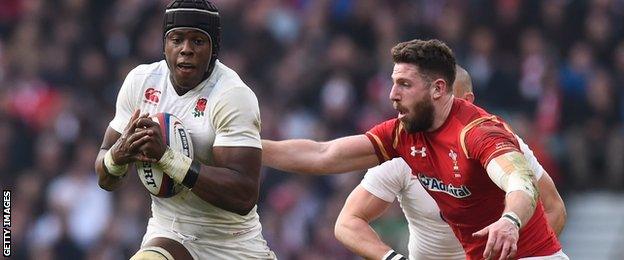
Second row Maro Itoje won the man of the match award against Wales in only his third Test
In the backs, the settled 10-12-13 combination of George Ford, Owen Farrell and Jonathan Joseph looks fluent while the back three - wings Anthony Watson and Jack Nowell especially - have been razor sharp.
Jones has tinkered with his line-up for Paris, bringing in Danny Care at scrum-half.
He is a sharp, sniping number nine and is quicker in pace and thought around the breakdown than Ben Youngs, who he has replaced.
He is going to come out fizzing, determined to prove he should be first choice. It is a clever piece of psychology to take the fight to France.
Better gameplan
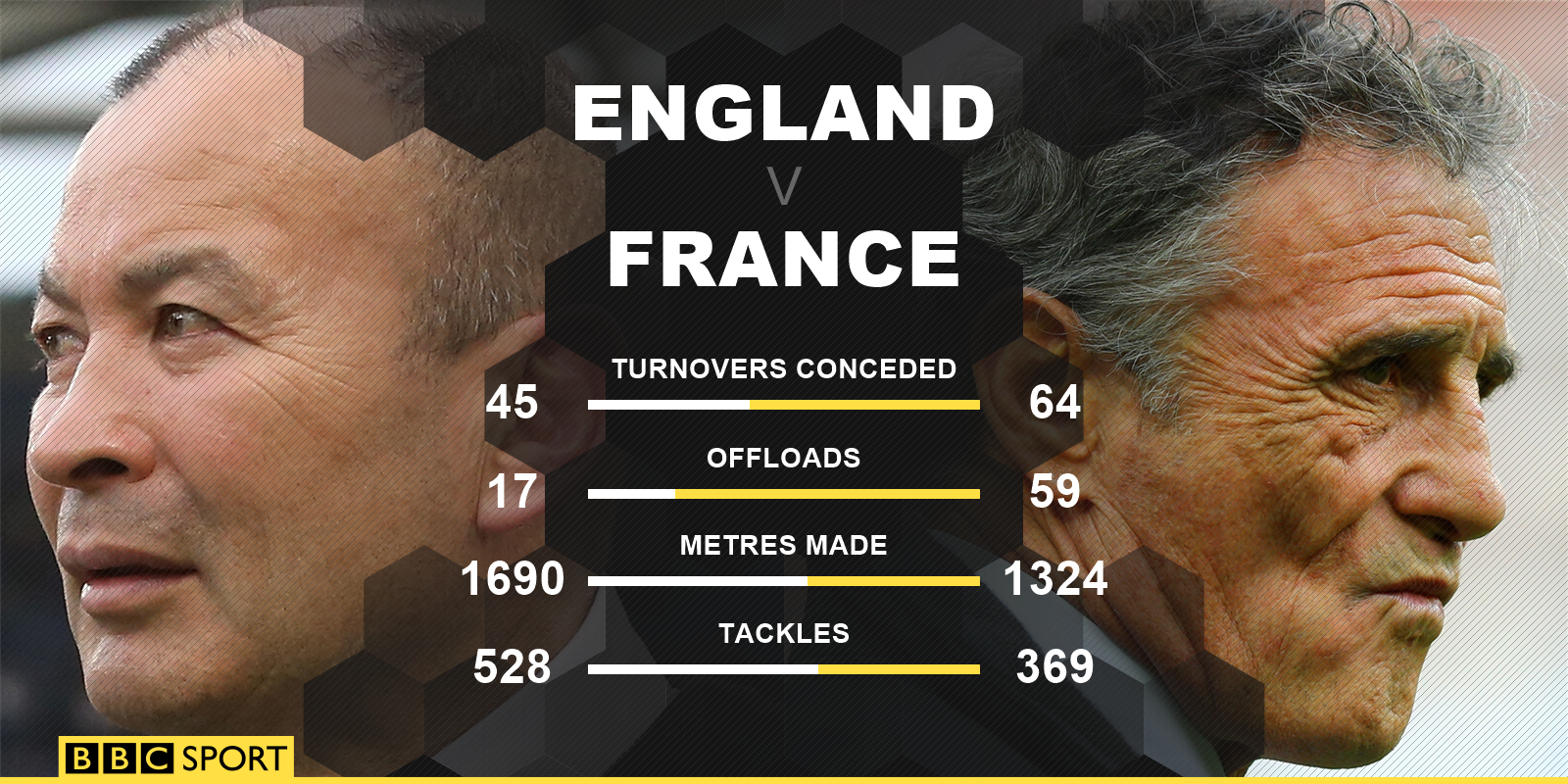
France eclipse the number of offloads made by England, but have made fewer metres
For most teams in the championship, you can outline a clear philosophy.
England hit in close with forward runners, assess the options and - when the time is right - probe space out wide.
Wales are slightly in transition this year, but have a direct style with big midfield runners creating holes to fall back on.
Scotland's ethos has been dubbed "ruck and run" as a result of their eagerness to recycle quickly and keep the ball in hand.
But France just don't look like they know what they are doing - their gameplan seems a random mix of ideas.
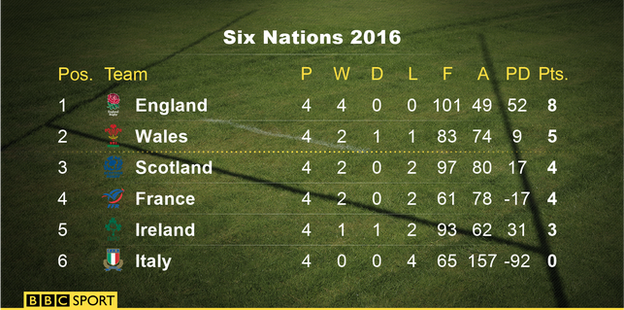
With two points available for a win, England can not be caught at the top of the table
They appear torn between playing it tight with an emphasis on the set-piece and mauls, and giving the French public what they want with a more expansive game.
France have made more than twice as many offloads as any other team in the tournament.
They are trying to play off the cuff, but it is so long since they did that as a national side - and so few of their clubs do it in the Top 14 - that they are really struggling to make it work.
They have given away 64 turnovers while England have restricted the opposition to just 45. Nine of those turnovers against France have come inside their own 22, compared to just three conceded by England in that section of the pitch.
Better set-up
Both France coach Guy Noves and England counterpart Jones are new to their roles.
The way they have gone about their jobs is quite different, though.
In Noves' short time in charge, his team has continually been in flux.
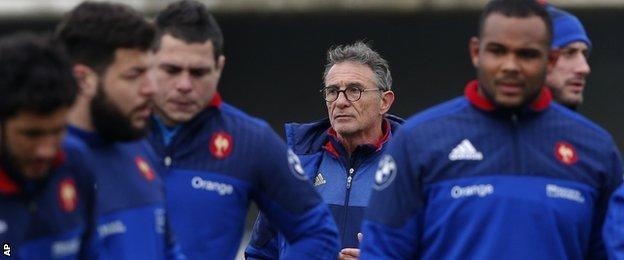
Noves took charge of France following last year's World Cup after 22 years at Toulouse
He has called up sevens specialist Vakatawa for the Six Nations, when the winger's last game in 15-man rugby was in December 2013.
He shunted the talented Fofana out from the centre to the wing for the defeat by Scotland last weekend and has done so again for Saturday.
And most crucially he has continued a trend of tinkering with the half-back partnership. Predecessor Philippe Saint-Andre never found a combination he was happy with and Noves looks similarly undecided.
He has kept Trinh-Duc and scrum-half Maxime Machenaud in place for this game but opted for Sebastien Bezy and Jules Plisson earlier in the Championship.
This latest duo is France's 19th different half-back partnership since 2011 and no team can be consistent with that many changes in the positions where all the decisions are made.
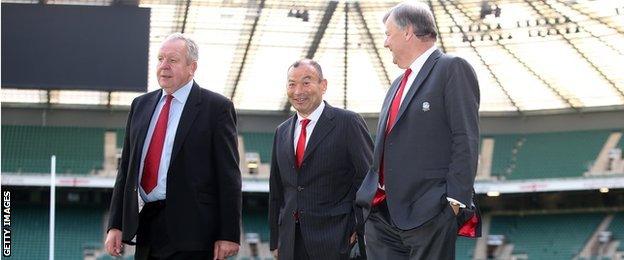
Eddie Jones tours Twickenham with RFU chairman Bill Beaumont (left) and chief executive Ian Ritchie (right)
Jones has tweaked England's ethos and tactics but in terms of personnel has kept most of the squad used by former boss Stuart Lancaster.
Away from the pitch, Jones also operates with greater freedom.
He reports to Rugby Football Union chief executive Ian Ritchie, formerly of Wimbledon.
Ritchie may know lots about tennis, but he will have to bow to Jones' greater rugby knowledge and, surely, whatever demands he makes.
In contrast, Noves has to contend with French rugby legends in their federation's hierarchy - Fabien Pelous, Serge Blanco and Jo Maso all hold prominent positions - as well as the power of the domestic clubs in France.
For example, France's top players turned out for their clubs in the free weekend in the middle of the tournament - no other coach has to put up with those competing demands.
'Weight of history' can be overcome
The famous defeat against Scotland in the Grand Slam decider at Murrayfield in 1990 was only my sixth Test for England.
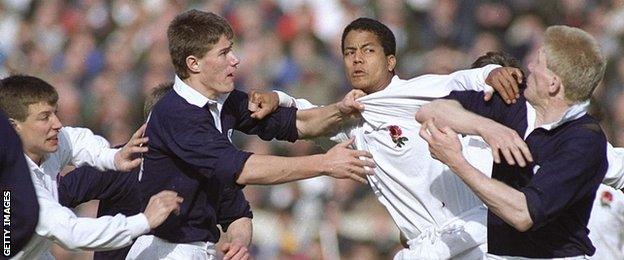
Guscott scored England's only try at Murrayfield in 1990
People played up the psychology of that game - Scotland captain David Sole's slow walk on to the pitch, the anti-English sentiment in the crowd, the 10-year wait since our last Grand Slam - but, as I always tell people, Scotland were just an extremely good side.
I had no baggage or hurt and pain from the past, I just wanted to win a game of rugby.
I had no idea how big the Grand Slam was in 1990. The next year I understood.
I had the pain of losing that game at Murrayfield and understood how big the match against France was as we went for the Grand Slam again.
But we knew, as I think this England team should, that if we played our best rugby we would win.
Everyone kept things as normal as possible in the build-up. Captain Will Carling was not any more or less vocal, neither was Brian Moore up front.
When you have a mix of carefree youth and steadying experience it works well - and I think England do have that mix.
Johnson relives 2003 Six Nations Grand Slam
Prediction
These Grand Slam games are rarely won by a huge margin - 2003 was an exception when England romped away 42-6, external against Ireland.
If England get a fast start the French crowd could turn against their own and things could get ugly for the hosts - but it would be a brave man to predict a cricket score.
That said, I do think the visitors will win, by seven to 10 points.
This weekend's Six Nations schedule | ||
|---|---|---|
Date (All times GMT) | Fixture | Coverage |
Sat, 19 Mar (14:30 KO) | Wales v Italy | BBC One, S4C and BBC Radio |
Sat, 19 Mar (17:00 KO) | Ireland v Scotland | ITV and BBC Radio |
Sat, 19 Mar, (20:00 KO) | France v England | BBC One and BBC Radio |
- Published18 March 2016
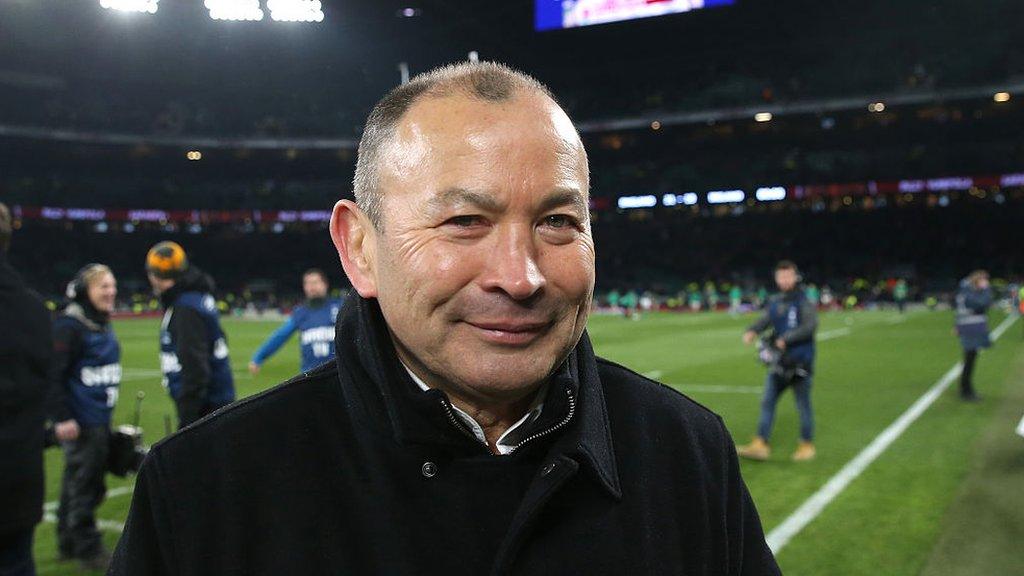
- Published17 March 2016
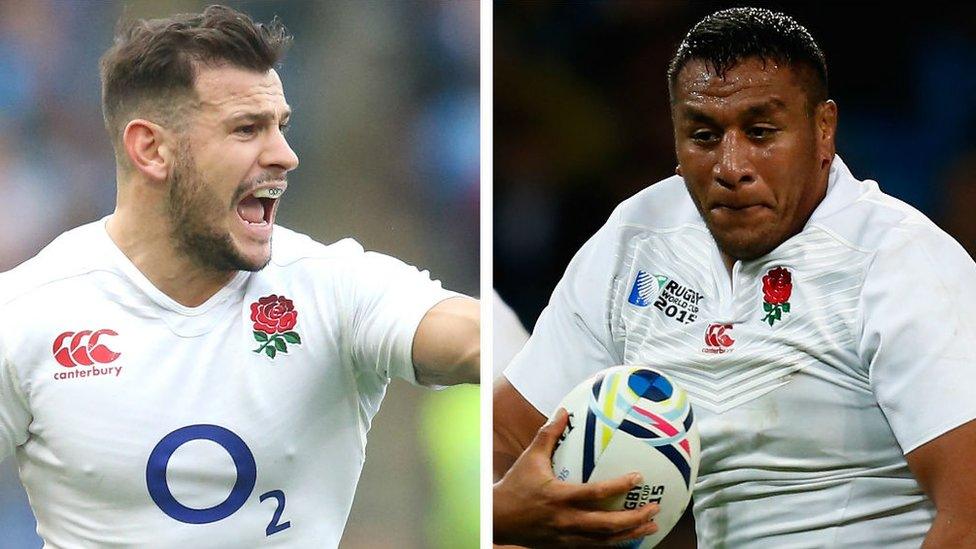
- Published17 March 2016
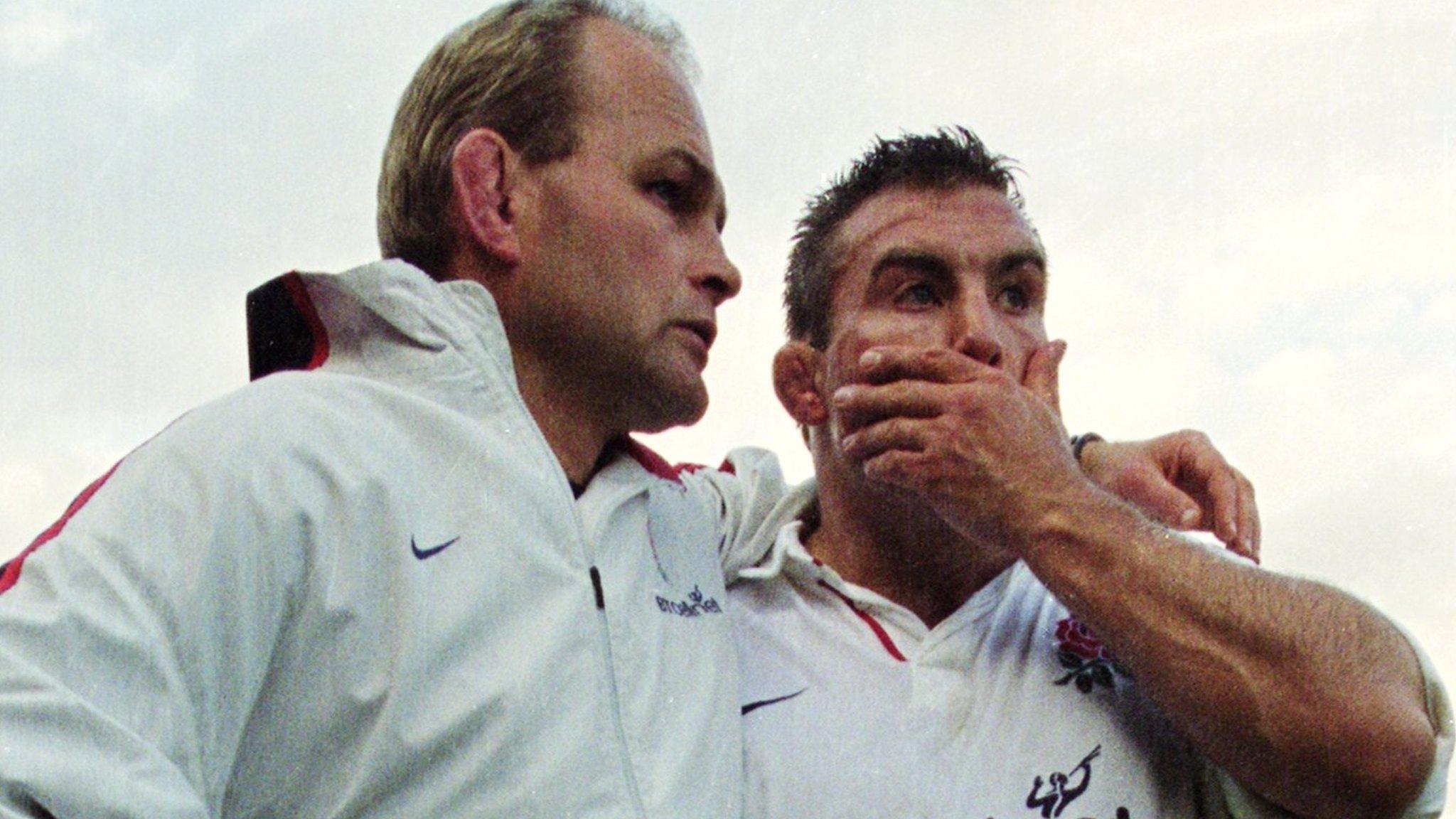
- Published16 March 2016
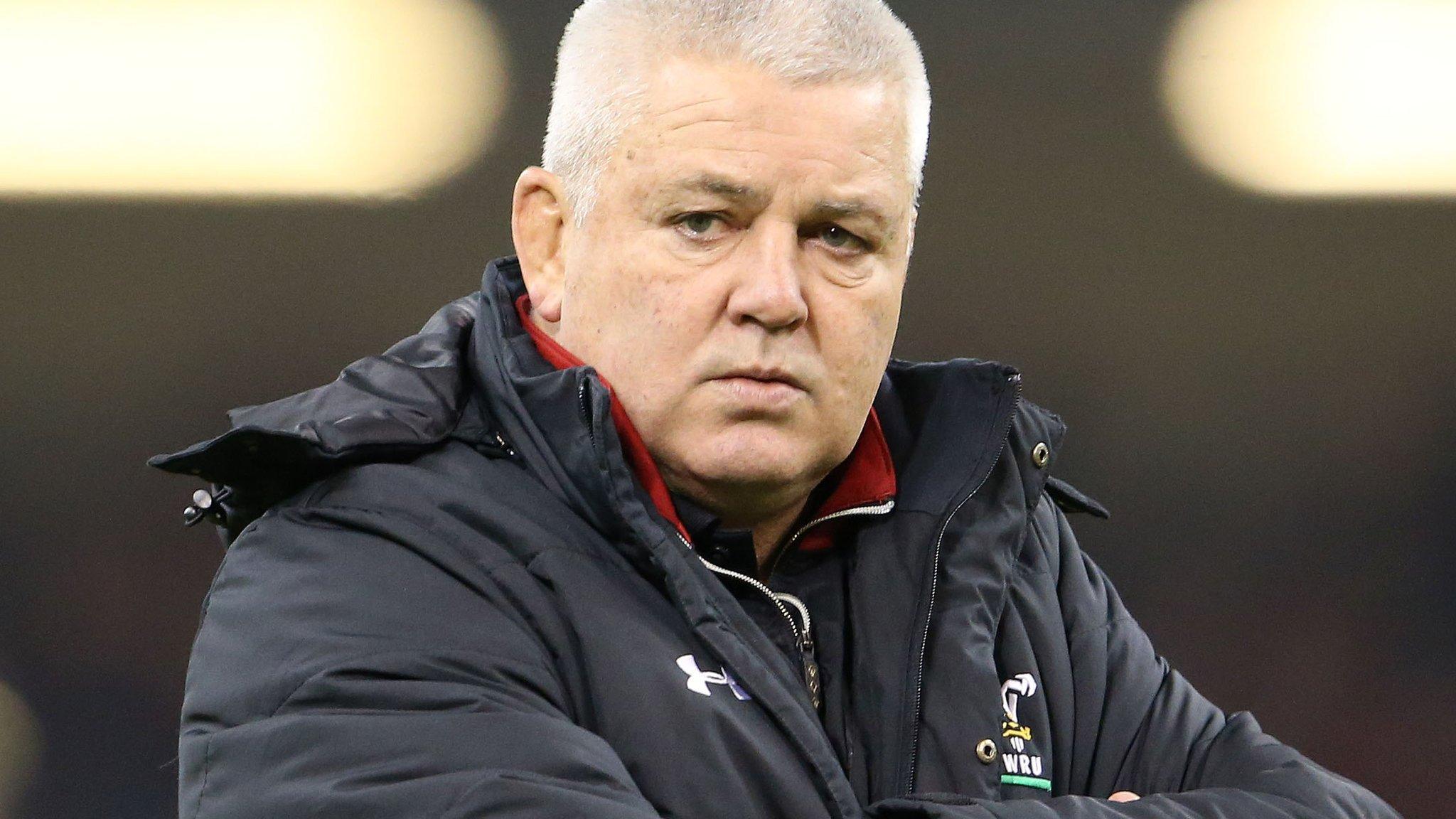
- Published10 February 2016
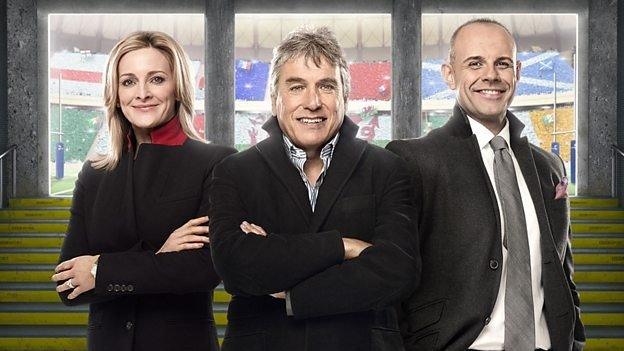
- Published14 September 2016

- Published15 February 2019
